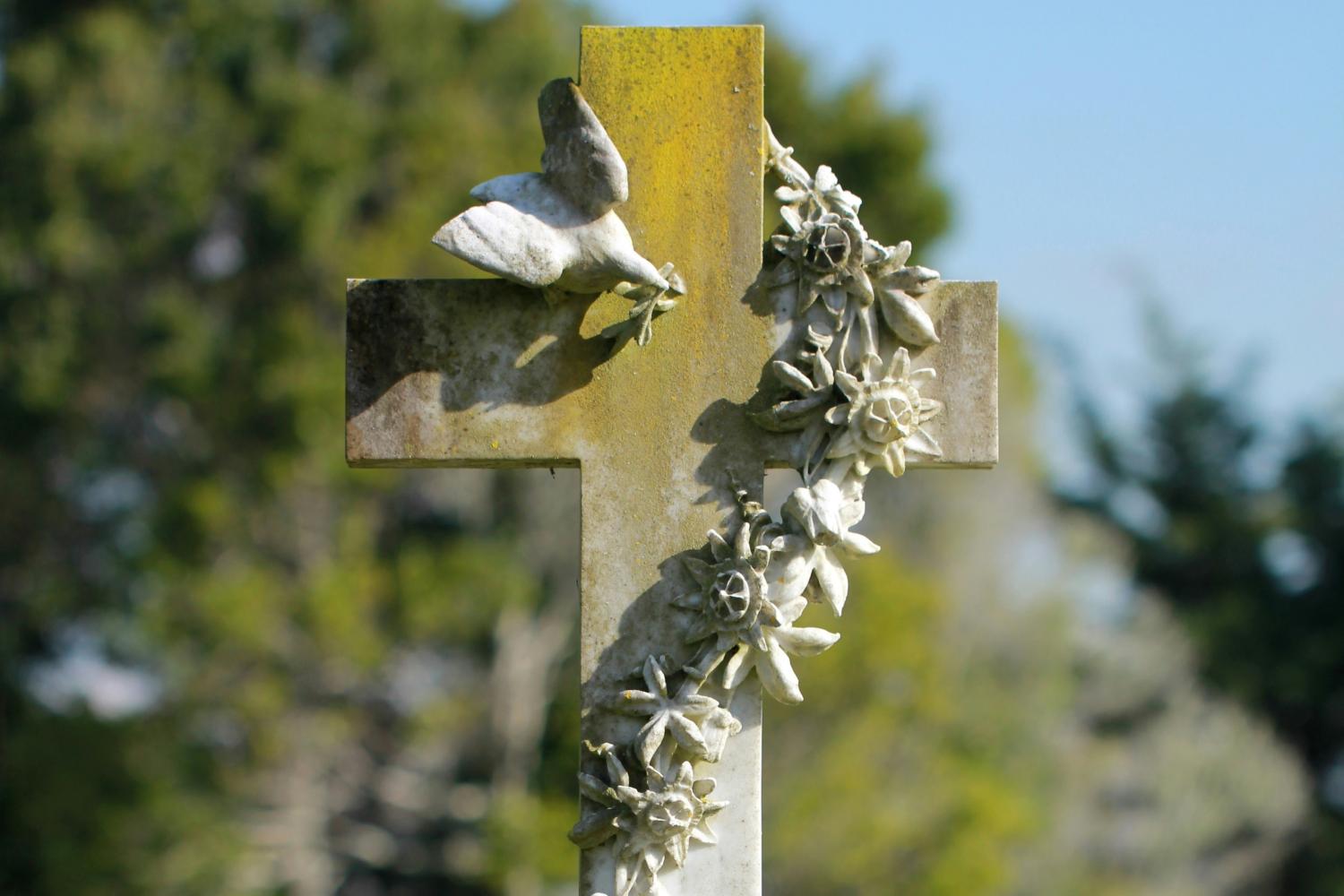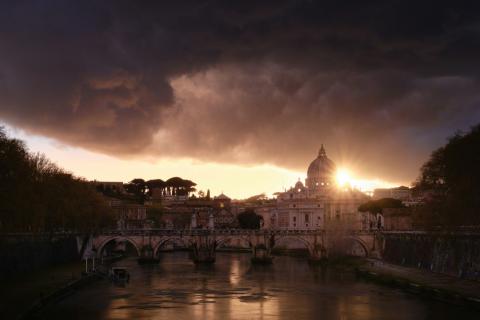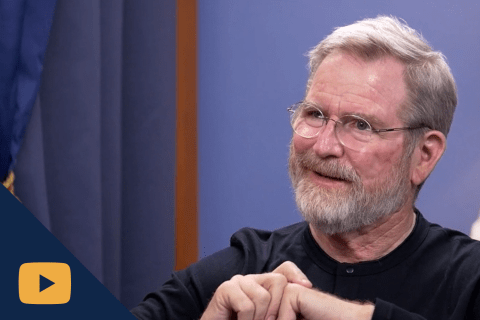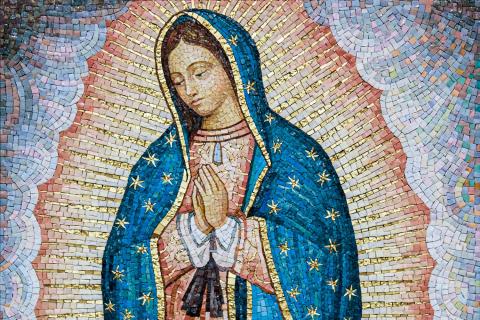
As we prepare for the celebration of Holy Week, Christians turn their attention to the redemptive suffering and self-gift that Christ made in His crucifixion. His journey up Calvary was to make of Himself, one who is true God and true man, an offering to God the Father in atonement for our sins. He is the true mediator who can bridge the gap between heaven and earth, having assumed in His person all that is of God, and all that is human, except sin.
As the Son makes a loving donation of Himself on our behalf, one can ask where the Holy Spirit was in this process. What role did the Third Person of the Trinity play in the Paschal mystery? St. John Paul II offers us a helpful explanation in his 1986 encyclical on the Holy Spirit, titled Dominum et Vivificantem.
In this text, the Holy Father refers to the Letter to the Hebrews, which states, “[I]f the blood of goats and bulls and the sprinkling of a heifer’s ashes can sanctify those who are defiled so that their flesh is cleansed, how much more will the blood of Christ who through the eternal spirit offered himself unblemished to God, cleanse our consciences from dead works to worship the living God” (9:13-14). This powerful claim compares the former Jewish practices of offering animal holocausts as a sin offering to God to the new Christian atonement offering: the Precious Blood of the Son of God.
The biblical author notes here that the shedding of Christ’s blood was accomplished “through the eternal spirit.” As God is one, the three Persons of the Most Holy Trinity do not act apart from one another. The Father, Son, and Spirit share the same divine nature, the same divine substance, and therefore are always in concert with each other. And thus while it was proper for the Son to offer Himself for our redemption, He was not alone in this self-offering on Good Friday. Christ’s humanity had already been anointed by the Holy Spirit, and as the Son, he moved in communion with the Holy Spirit, who sanctified His self-offering with charity. As St. John Paul II describes, “[T]he Holy Spirit acted in a special way in this absolute self-giving of the Son of Man, in order to transform this suffering into redemptive love.”
On occasion, the Old Testament makes reference to the “fire from heaven” that accompanied past sacrificial offerings. In this same way, the Holy Father notes that “the Holy Spirit is the ‘fire from heaven’ which works in the depth of the mystery of the Cross.” The Cross is not simply an instrument of torture, but is the altar of redemption that poured out mercy for the human race. The Holy Spirit directs this offering of the Son to the Father as the gift of divine love. In this way, St. John Paul could say that the Spirit was present “as the Love that works in the depths of the Paschal Mystery,” and from that offering, this Love continues to share with us the gift of divine life through grace.
During Holy Week, we focus intently on God the Son who joined Himself to the human family in order to save us from the endless cycle of sin and death. And as we commemorate His journey to the Cross, we also recall the Holy Spirit who is the shared Love of the Father and the Son. This shared gift was present at Calvary, consecrating the self-offering of the Son to the glory of the Father. In a similar way, let us ask the Holy Spirit to sanctify our Lenten practices and self-offerings, so that our journey to the Father in repentance for sin is accomplished in the same manner of Christ.


